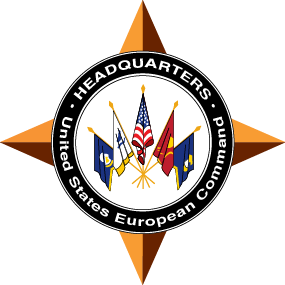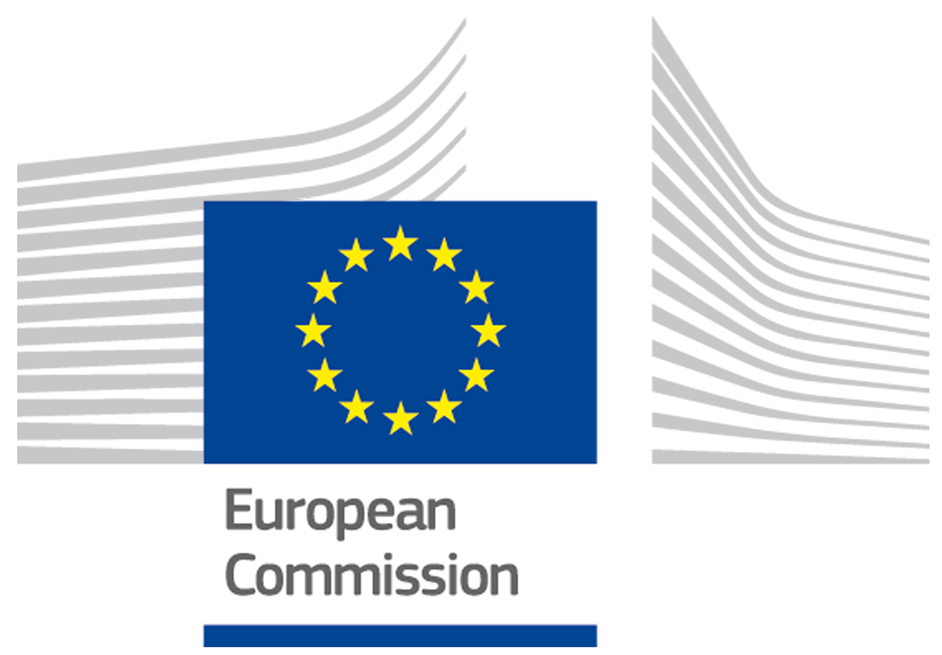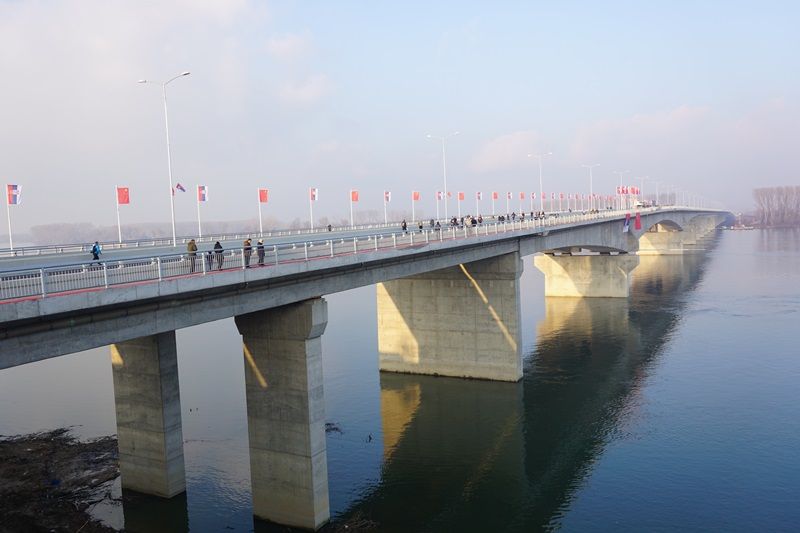
Summary
The EU promised to open its doors to the Western Balkans 15 years ago and recently recommitted to make this happen. But although the region now benefits from EU pre-accession funds and several programmes, none of its six countries (including Kosovo) expect to become EU members before 2025. This fragile region – still struggling with reconciliation three decades after civil war – also faces new problems like populism, a resurgent nationalism, and a democracy deficit due to weakened mainstream media. Is accelerated regional cooperation the best solution to all this?
New political momentum is building for stronger ties between the EU and Western Balkans. This was an encouraging conclusion of the Friends of Europe’s 2018 Balkan summit, held in Brussels on 4 December. The event featured a range of different state and non-state actors, with a stimulating debate on the region’s opportunities and challenges.
“The European Commission is doing everything possible to support the Western Balkans countries’ economic reforms and in fields like the rule of law, democracy and fighting corruption. Their challenge is broader transformation – choosing to align with EU culture and politics and so on – and not just piecemeal reforms,” said Christian Danielsson, European Commission Director-General for Neighbourhood and Enlargement Negotiations.
Regional participants said EU funds, notably the Instrument for Pre-accession Assistance (IPA), are much valued for new infrastructure, growth and jobs. Yet one speaker commented that unless these funds are rapidly increased, countries there won’t catch up with today’s EU members for another half-century.
Youth, the vast majority of Western Balkans populations, are further cause for concern. There were calls for greater EU support to tackle the region’s high youth unemployment, which creates a braindrain problem too. Specific regional challenges also need fixing fast, especially visa liberalisation for Kosovans. Unless the EU enables this scheme soon, Kosovans may turn away from Europe and its promises. The implication was that the region’s citizens could prefer other global players, such as Russia or China.
There was overwhelming support for more regional connectivity – whether physical (transport, energy, etc.), digital (e.g. new initiatives for open data access or empowering women), or cross-border between people. On the human side especially, civil society organisations (CSOs) are doing great work. The Regional Youth Cooperation Council for example runs 35 projects focused on youth cooperation, including student exchanges. “Better connectivity among Western Balkans countries is key to their EU accession,” argued Majlinda Bregu, Secretary-General of the Regional Cooperation Council.
The audience learned of positive efforts to tackle a shrinking media space, with all its inherent dangers for peace and democracy. Here the EU is supporting free and independent media, through its media freedom guidelines and the European Endowment for Democracy. Several CSOs are even engaged in fact-checking against fake news – or what the EU calls ‘disinformation’. “People in the Western Balkans need access to manipulation-free independent media. If well-informed, they will be more involved in regional democracy,” added Jasna Jelic, Head of the Western Balkans Task Force at the European External Action Service.
In a region traditionally tainted by corruption and violence, there was good news from Albania. It’s engaged in a radical judicial vetting process, also with EU support. This initiative should serve as a useful reform model for neighbouring countries. It could also underpin a region-wide drive for more transparency – a vital element of all future Western Balkans cooperation.
About
For the 19th edition, Friends of Europe and its partners will address the political, economic and social issues that affect the Balkans. The annual Balkans Summit, taking place on Tuesday 4 December will bring together senior policymakers from the region to share their concerns and ideas with EU and member state policymakers. Our Balkans series has welcomed presidents, prime ministers and ministers, as well as a few hundred key representatives from the EU institutions, member states, business representatives and civil society. The future of the Western Balkans is an issue that is moving swiftly up the European agenda. With economic stagnation, nationalism, populism, organised crime, corruption and external drivers of instability, Balkan countries face strong pressure as they wait to join the European Union.
Schedule
Fifteen years after they promised to open European Union doors to the Western Balkans, EU leaders, meeting in Sofia, have once again confirmed their commitment to the region – but steered clear of offering any prospect of quick membership. EU policymakers, including European Commission President Jean Claude Juncker, insist that “step by step, each day” the Western Balkans are coming a bit closer to the EU. The new European Commission strategy for the region adopted in early 2018 also underlines the need for the EU to “maintain a credible enlargement perspective” for the Western Balkans and emphasises the importance of reconciliation in the region. But, persistent EU “enlargement fatigue” and the economic and political challenges still facing the region, have made many EU leaders wary of promising fast-track membership. Patience with the EU is wearing thin among Western Balkans leaders, however, as global players including China, Russia and Turkey are increasingly active and the public mood becomes more sceptical about joining the EU. Meanwhile, there are indications that Belgrade and Pristina could agree to a land swap to end their dispute.
What is the state of implementation of the Commission’s “flagship initiatives” for the Western Balkans unveiled earlier this year?
Can the proposed redrawing of the border resolve the Kosovo*-Serbia dispute or could the initiative open a Pandora’s Box in the Balkans, leading to new conflicts rather than reconciliation?
Which are the priority political reforms in areas such as the rule of law, independence of the judiciary and media freedom that the Western Balkans must undertake to sustain the “credible enlargement perspective”?
Speakers
Christian Danielsson
Swedish State Secretary for EU Affairs
Mirjana Spoljaric-Egger
Assistant Secretary-General of the United Nations, Assistant Administrator of UNDP, and Director of the UNDP Regional Bureau for Europe and the CIS
Etilda Gjonaj
Member of the Albanian Parliament and former Albanian minister of justice
Dhurata Hoxha
Minister of European Integration of Kosovo*
Philip Reeker
Ambassador, Civilian Deputy to the Commander and Foreign Policy Advisor of the US European Command (EUCOM)
Radmila Šekerinska
Minister of Defence, Former Yugoslav Republic of Macedonia (FYROM)
Moderator
Shada Islam
Managing Director at New Horizons Project
In a bid to boost economic growth and development and create jobs across the region, the EU and the Western Balkans have agreed on an ambitious Connectivity Agenda to improve economic links within the Western Balkans, as well as between the Western Balkans and the EU. The Agenda includes the preparation and financing of regional infrastructure investment projects as well as the implementation of technical standards and reform measures such as aligning/simplifying border crossing procedures, railway reforms, information systems, road safety and maintenance schemes, unbundling and third party access. Encouraging connectivity – including digital connectivity – is also seen as an important part of efforts by the Western Balkans to meet EU membership criteria. The region is becoming increasingly attractive as an economic partner and although the EU is the largest investor in the region, other global players are also emerging as important economic actors.
What are the key challenges and opportunities linked to key connectivity projects in the Western Balkans?
Which priority economic reforms are still needed in the Western Balkans in order to sustain the “credible enlargement perspective”?
Are Western Balkans leaders paying enough attention to the concerns of their young people as regards to education and entrepreneurship?
Speakers
Radosav Babic
Director-General for Investments, SME Development and EU Funds Management at the Ministry of Economy of Montenegro
Majlinda Bregu
Secretary-General of the Regional Cooperation Council (RCC)
Tanja Fajon
Slovenian Minister of Foreign Affairs and Trustee of Friends of Europe
Linda Van Gelder
Regional Director for the Western Balkans at the World Bank
Moderator
Shada Islam
Managing Director at New Horizons Project
Kezz, aka Tamara Ristic, is a Belgrade-based producer, live looping artist, singer-songwriter and a music performer. Kezz performs solo with her voice, loop machine, keyboard, sampler and acoustic instruments. Her music is a distinctive combination of modern, electro-acoutic sound and mesmerising singing inspired by the traditional music of the Balkans, with a strong emotional interpretation and powerful energy.
The existence of a strong and independent media is a guarantor of democracy and since many challenges in the Western Balkans stem from deep social divisions, media can play a role in encouraging reconciliation, increasing connectivity and encouraging mutual understanding in the region. The EU and other international actors are providing assistance to some Western Balkans media but the sector also faces the challenge of dealing with disinformation and fake news disseminated by foreign powers as well as restrictions imposed by national governments. Meanwhile, non-governmental organisations and grassroots movements which are working on building sustainable democracy are also often criticised for being driven by international donors and reflecting “foreign” values.
Does media currently promote or hinder reconciliation in the Balkans and what is the best way of tackling the manipulation of public opinion by fake news and disinformation?
Can NGOs take a more active role in speaking out against corruption and erosion of accountability?
What is the role of regional/local government in supporting grassroots and a vibrant civil society participation, including youth?
What is the role of universities in supporting institutional capacity building?
*For the United Nations Development Programme, references to Kosovo in this document accordingly shall be understood in the context of Security Council resolution 1244 (1999);
For the European Union, This designation is without prejudice to positions on status, and is in line with UN Security Council resolution 1244/99 and the International Court of Justice Opinion on the Kosovo declaration of independence.
Speakers
Duro Blanusa
Secretary-General of the Regional Youth Cooperation Office (RYCO)
Zdravka Bušić
State Secretary for Political Affairs at the Ministry of Foreign and European Affairs of the Republic of Croatia
Jasna Jelisic
Head of the Western Balkans Task Force at the European External Action Service
Blerta Thaçi
Executive Director of Open Data Kosovo*
Moderator
Shada Islam
Managing Director at New Horizons Project
Speakers

Director-General for Investments, SME Development and EU Funds Management at the Ministry of Economy of Montenegro
Appointed to his current position in 2017, Radosav Babic has worked in the Montenegrin Ministry of Economy for almost ten years. Coordinating different departments within the Directorate, Babic is responsible for implementing various national programmes relating to financial SME support as well as EU funded projects. Amongst others, he is responsible for the multi-annual action plan for a regional economic area in the Western Balkans. Babic also previously spent several years in the private sector, where he worked for the Montenegro branch of one of the largest banks in Central and Eastern Europe, OTP Bank.

Secretary-General of the Regional Youth Cooperation Office (RYCO)
An experienced Serbian policymaker, Duro Blanuša previously served as the senior advisor for International Cooperation and European Integration in the Ministry of Youth and Sports and also lead the group for pre-accession financial assistance and international funds. He was also the official representative of Serbia in the European Steering Committee for Youth (CDEJ), the governmental partner responsible for managing the cooperation between governments in youth policy at the Council of Europe. He has a long track record of activism in civil society and the non-governmental sector, having worked at Save the Children and local youth organisations.
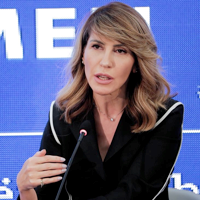
Secretary-General of the Regional Cooperation Council (RCC)
Majlinda Bregu is an accomplished Albanian Politician and a strong EU believer. From 2005 to 2017, Mrs. Bregu was elected as a Member of Parliament for three consecutive legislatures for the Centre Right. In this role she worked for an all-inclusive approach and far-reaching consensus on the European perspective of Albania and the region. She previously served as Minister of European Integration and as government spokesperson where she helped promote the importance of Albania’s membership perspective to the EU for the stability of the region. Additionally, she has actively supported and contributed to the civil society forum established under the Berlin process.

State Secretary for Political Affairs at the Ministry of Foreign and European Affairs of the Republic of Croatia
With an extensive background in Croatian and European politics, Zdravka Bušić currently serves as State Secretary for Political Affairs at the Ministry of Foreign and European Affairs of the Republic of Croatia. Before assuming her current position, she served as Deputy Minister of Foreign and European Affairs. Having served as both Member of the European Parliament and Member of the Croatian Parliament, Bušić is an experienced politician and representative of her constituents. Prior to her parliamentary experience, she served as an Advisor and Head of the Office of the President of the Republic of Croatia, Dr. Franjo Tuđman.
Saška Cvetkovska is an investigative reporter and a media freedom activist. She was one of the founders of the online news media “NOVATV” in 2013, where she worked as an investigative editor until the January 2018. She then decided to set up the Investigative Reporting Lab – an NGO whose mission is to fight misinformation with real reporting through inter-disciplinary approaches that include technology, academic researchers, marketing experts and investigative reporters. She also works as an investigative reporter for the Organized Crime and Corruption Reporting Project – a cross-border platform with over 30 member centres in Europe, Central Asia, Africa, South America and the Middle East.
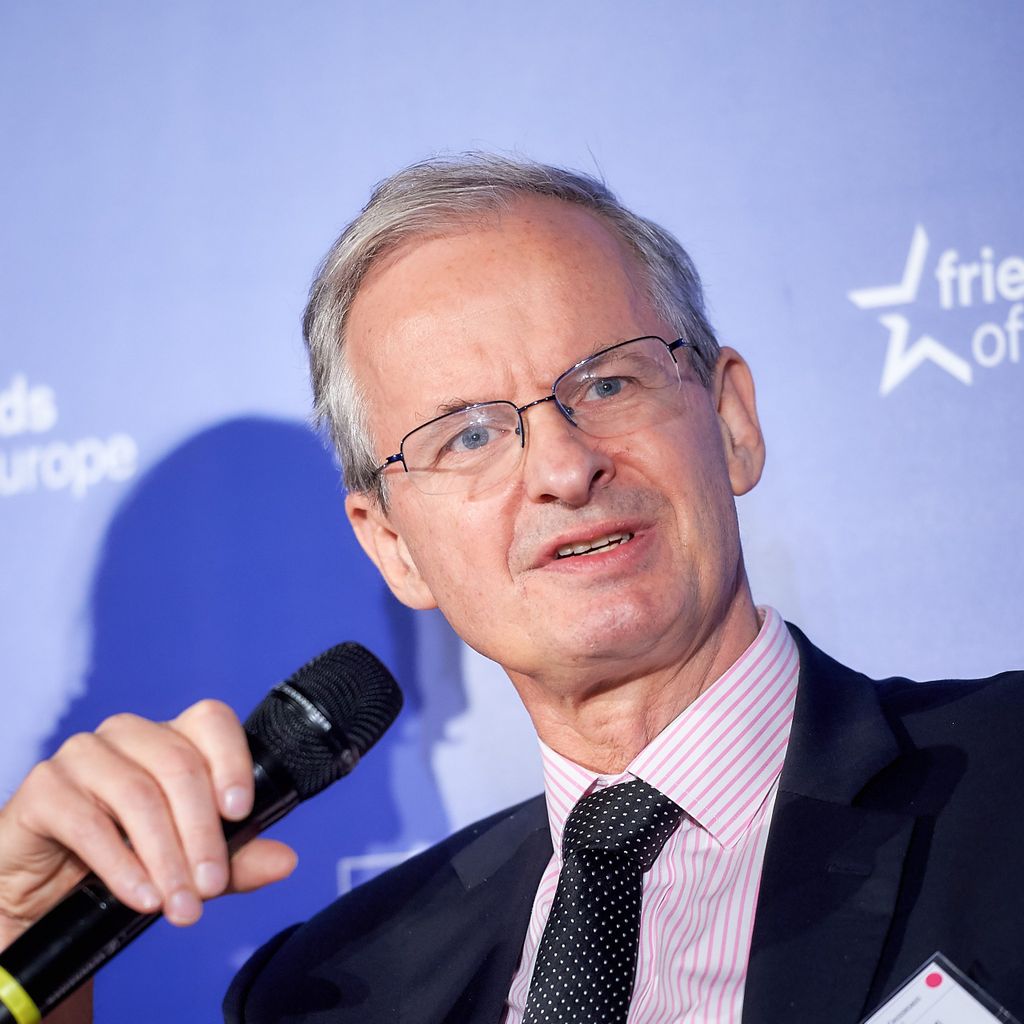
Swedish State Secretary for EU Affairs
A Swedish diplomat with over 20 years of experience at the European Commission, Christian Danielsson has held several key positions alongside Commissioners, Vice-Presidents and in the Directorate-General for Neighbourhood and Enlargement Negotiations, where he now serves as Director-General. In that capacity he leads the Commission team in guiding the Western Balkans in the implementation of important reforms including judicial systems and corruption. Danielsson is an important player in the EU enlargement process, having previously managed and coordinated the accession process of Croatia, the Republic of Macedonia and Turkey.

Assistant Secretary-General of the United Nations, Assistant Administrator of UNDP, and Director of the UNDP Regional Bureau for Europe and the CIS
Appointed Director of the Regional Bureau for Europe and the Commonwealth of Independent States, Mirjana Spoljaric Egger leads UNDP’s work in supporting countries across the Western Balkans in their efforts to achieve the Sustainable Development Goals, amongst other responsibilities. Egger previously served as Head of United Nations and International Organisations Division of the Swiss Federal Department of Foreign Affairs, where she has been instrumental in shaping Switzerland’s position to the UN. She combines a strong policy background with field experience and has had several assignments in the Swiss Federal Department of Foreign Affairs.
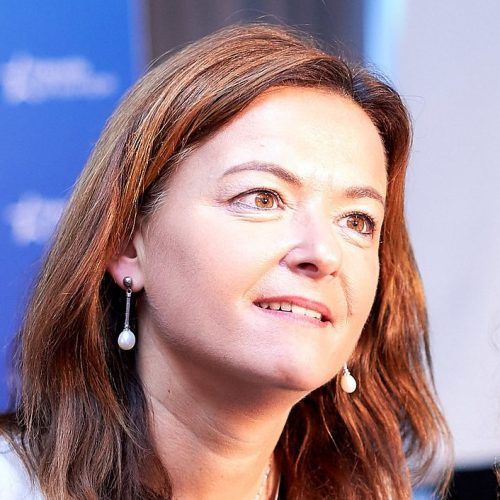
Slovenian Minister of Foreign Affairs and Trustee of Friends of Europe
A politician and journalist, Tanja Fajon is currently serving as Member of the European Parliament. A passionate advocate of freedom of movement and its economic benefits, Fajon was previously the European Parliament rapporteur on the visa liberalisation process for the Western Balkans. In this position, she was instrumental in helping Albania as well as Bosnia and Herzegovina win the right to visa-free travel to Europe. In 2016, Slovenian opinion polls showed her to be highly visible and one of the most popular political figures in the country.
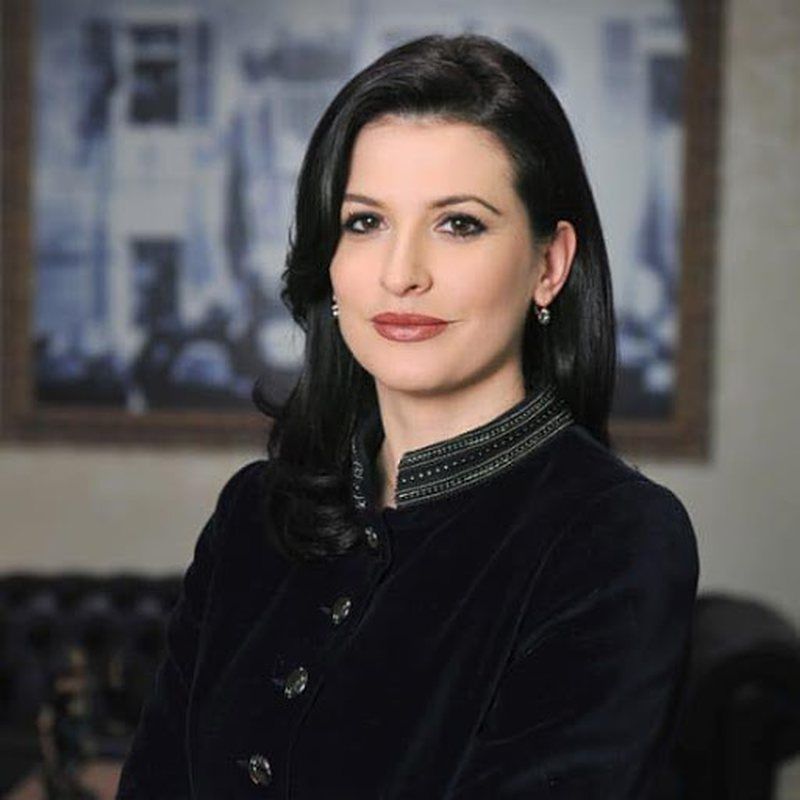
Member of the Albanian Parliament and former Albanian minister of justice
Appointed Minister of Justice of Albania in September 2017, Etilda Gjonaj is working to bring about reform in Albania’s justice system, notably in the conduct of investigations, organised crime, terrorism and corruption. She brings with her a plethora of experience from civil society, academia, law and human rights. She has served as an expert and consultant in a number of domestic and foreign organisations focusing on human rights and justice issues, monitoring Albania’s progress in the European integration process and implementing European Commission recommendations.
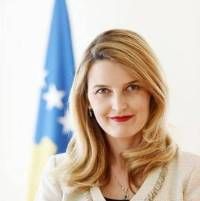
Minister of European Integration of Kosovo*
Dhurata Hoxha was appointed the Minister of European Integration in September 2017, following her prior position as the Minister of Justice. Before being appointed as Minister, she was the Political Advisor to the Speaker of Assembly of Kosovo*, Kadri Veseli, with responsibilities covering security and rule of law policies. Furthermore, Hoxha served as a Political Advisor to the Prime Minister of Kosovo*, Hashim Thaçi. Her main responsibilities covered aspects of national security and rule of law. She also worked for the US Office (now US Embassy) in Prishtina and other organisations such as OSCE and UNDP.
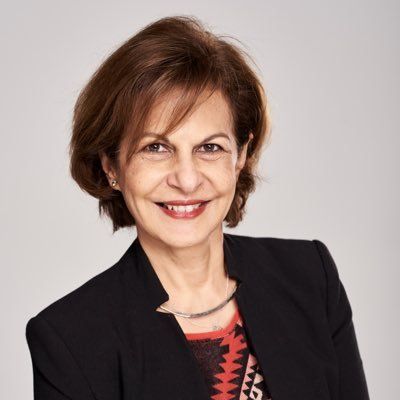
Managing Director at New Horizons Project
Shada Islam is responsible for policy oversight of Friends of Europe’s initiatives, activities and publications. She has special responsibility for issues related to the Future of Europe, Migration, the Asia Programme and the Development Policy Forum. Shada is Visiting Professor at the College of Europe (Natolin) where she teaches Asia-Europe relations and has been selected as a fellow by the Vrije Universiteit Brussel (VUB). She has been named as one of twenty most influential women in Brussels by Politico. Shada is the former Europe correspondent for the Far Eastern Economic Review and has previously worked on Asian and Migration issues at the European Policy Centre. She is one of the authors of Friends of Europe’s much-read “Frankly Speaking” commentary and is sought after as a speaker, commentator, columnist and moderator at high-level European and global events. Shada also continues to write on EU foreign and security policy, EU-Asia relations and trade and development issues for leading Asian, European and international publications and academic journals.

Head of the Western Balkans Task Force at the European External Action Service
Dr. Jasna Jelisic is Head of Western Balkans Task Force in the Strategic communication division of the European External Action Service (EEAS) in Brussels. Her professional posts in the Western Balkans entailed a wide range of responsibilities and challenges, dealing with numerous complex issues related to the implementation of EU enlargement policy and the Stabilisation and Association Process. During 2015/16, Dr. Jelisic contributed to the development of the EU’s Global Strategy, arguing for the positioning of public diplomacy as one of the key pillars of EU external action.
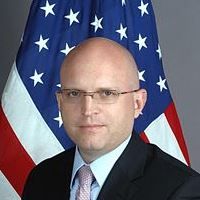
Ambassador, Civilian Deputy to the Commander and Foreign Policy Advisor of the US European Command (EUCOM)
An American diplomat, Philip Reeker assumed his duties as EUCOM Civilian Deputy and Policy Advisor in November 2017. He has previously held prominent positions within the US State Department focusing on the Balkans and Central Europe, including as Deputy Assistant Secretary for European and Eurasian Affairs and as Ambassador to Macedonia. The recipient of the Edward R. Murrow Award for Excellence in Public Diplomacy, Reeker travelled extensively domestically and internationally in his previous position as “Spokesman at Large” for the State Department, giving talks and interviews on US foreign policy.

Minister of Defence, Former Yugoslav Republic of Macedonia (FYROM)
Appointed to her current role in 2017, Radmila Šekerinska has a long career in politics and government, and previously served as Deputy Prime Minister. In that capacity, she prepared the candidacy of the FYROM for membership to the EU and guided the process of internal preparations for securing candidate status. Among other responsibilities, Šekerinska was also President of the National Council for European Integration, where she was involved in several committees including on European affairs, foreign policy and social affairs. She is the recipient of numerous awards for her engagement and commitment in the field of European integration in the Western Balkans.

Executive Director of Open Data Kosovo*
Blerta Thaçi is the Executive Director of Open Data Kosovo*, a non-profit organisation that works to bring government transparency and accountability through technology. She is driven to contribute to the formation of ‘smart institutions’ that deliver high-quality services to Kosovo’s* citizens. Thaçi was awarded the FIDES Philanthropy Award, the Women in ICT Award and the Forbes “30 Under 30 award’ for her work at Open Data Kosovo*, which recognised the organisation as one of the most successful initiatives for contributing to the improvement of law and policymaking in Europe.
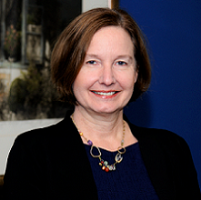
Regional Director for the Western Balkans at the World Bank
As Regional Director for the Western Balkans, Linda Van Gelder is responsible for leading the dialogue on economic reform with the six countries of the Western Balkans, developing the World Bank’s country strategies, managing the World Bank portfolio, coordinating with partners, and engaging in outreach on economic growth and poverty reduction in the Western Balkans. Prior to this position, she was the Director of Strategy and Operations for Equitable Growth, Finance and Institutions Practice Group. Having held several corporate positions, her regional and country work has ranged across economic management, governance, and poverty reduction issues.
Activities
From ambition to action: building Europe’s Defence Union
Past event In person

- Area of Expertise
- Peace, Security & Defence
EU-Western Balkans Summit 2025
Next event In person & Livestreamed

- Area of Expertise
- Peace, Security & Defence
Frontline Voices: renewing the women, peace and security agenda
Past event Online

- Area of Expertise
- Peace, Security & Defence
Frontline Voices: diagnosing the disconnect – The Women, Peace and…
Past event Online

- Area of Expertise
- Peace, Security & Defence
Defence Science and Technology: can NATO maintain its edge as its…
- Category
- #CriticalThinking
- Author
- By Jamie Shea
The next EU budget: increasing defence resources for strategic autonomy
- Category
- #CriticalThinking
- Author
- By Daniel Dăianu
How Russia fabricates reality to feign innocence while bombing civilians
- Category
- Area of Expertise
- Peace, Security & Defence
What happens to a kid abducted by Russia? Survivors and detention camp maps…
- Category
- Area of Expertise
- Peace, Security & Defence

- Area of Expertise
- Peace, Security & Defence

- Area of Expertise
- Peace, Security & Defence

- Area of Expertise
- Peace, Security & Defence

- Area of Expertise
- Peace, Security & Defence
Continue
the debate on
- Debating Europe


